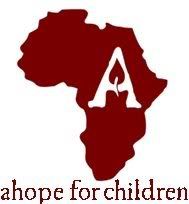Enkutatash
Inkan Aderasachew everyone! (translation - it's good that you have another new year) Today is Ethiopian New Years and I'm really craving some yummy Doro Wat and injera right now. I have yet to try my hand at Ethiopian cooking; I should really get on the ball and just do it. Maybe for Fasika... It's all very intimidating. Anyone in the know have some Ethiopian cooking tips for me?
The ethiopian New Year is referred as Enkutatash. The Julian calendar is followed by the ethiopians. The calendar is divided into twelve months that have thirty days each and in a leap year a thirteenth month comes. This month consists of five days and six days. It is important to note that the ethiopian calendar is eight years behind the Gregorian calendar.
The world Enkutatash means "gift of jewels". A historical incident relate to this particular term that relates the return of Queen Sheba from her journey to meet the King. During her visit, she was given precious jewels as gifts. Like other new years of other countries the Enkutatash also is celebrated with fun and frolic. The ethiopians welcome the New Year whole heartedly. Colorful processions, dances, songs and other merry making events take place. People exchange greetings among their relatives and friends. Sweets, candies and good food are also exchanged. The New Year is welcomed whole hearted expecting it to bring happiness and prosperities for the ethiopians.
- Celebrationsonnet
Enkutatash Customs
On New Year's Eve, torches of dry leaves and wood bundled in the form of tall and thick sticks are also set on fire in front of houses as the young and old sing. Early in the morning everybody goes to Church wearing traditional Ethiopian clothing. After Church there is a family meal of Injera (flat bread) and Wat (stew). The girls go from house to house singing New Year songs for money and the boys sell pictures that they have drawn. In the evening families go to visit their friends and drink tella the traditional Ethiopian beer. While the elders discuss their hopes for the New Year the children go and spend the money they have earned.
In more recent times it has also become usual for well-to-do city dwellers to send each other New Year greetings cards instead of the more traditional bunches of flowers.











 Referral Picture 6/21/07
Referral Picture 6/21/07
0 comments:
Post a Comment